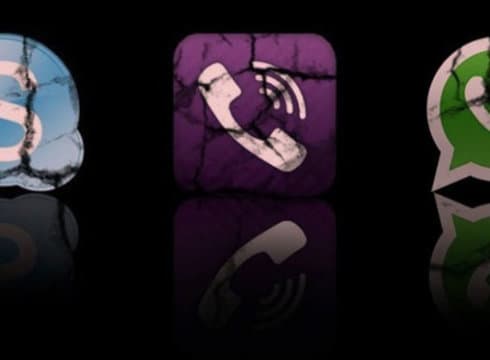Inc42 Daily Brief
Stay Ahead With Daily News & Analysis on India’s Tech & Startup Economy
With increasing smartphone penetration in countries like India and other developing countries, mobile has become the primary device for India. According to a recent report, Indians spend 3 hours a day on their smartphones and 24% of smartphone users use mobile apps such as Whatsapp and WeChat for business.
A report from Ovum had predicted that global telecom companies will lose $386 billion between 2012 and 2018 from customers using over-the-top VoIP (Voice over Internet Protocol) solutions such as Skype. These losses will be mostly from international call revenues and roaming services. The companies lost $32.5 billion in texting fees in 2013 and the figure is projected to reach $54 billion by 2016.
Telecom Regulatory Authority of India (TRAI) will meet on Tuesday to initiate the process of bringing in a regulation for over-the-top (OTT) companies or providers of apps like WhatsApp and Viber to pay connectivity charges to telecom companies and share revenue with the government as well.
The decision was taken on Monday, earlier this this week that a seminar would be organized on the regulatory framework for OTT services that aims to provide a platform to exchange the views on key issues related to OTT such as new developments in OTT, impact of OTT on telecom services providers and their counter measures, legal and regulatory framework for OTT.
Following this seminar, TRAI would come up with a discussion paper on OTT players.
Telcos Pushing For Revenue Sharing from OTT’s and asking Internet Companies to Setup Servers in India
Mobile companies, including Bharti Airtel, Vodafone India and Idea Cellular, want apps providers to pay a connectivity charge.
“We may be asking them to put their servers in India as they get connected to any telecom network in India without getting themselves registered that is something which is also a security concern for us,” added a senior official with the Department of Telecommunications (DoT). He further added that OTT players would anyway have to follow the law of the land.
OTT players would anyway have to follow the law of the land
The government had earlier said that it wasn’t looking at regulating these Internet-based services, though mobile operators have been pressing for it.
This was earlier attempted by the Congress government but had failed miserably. Instead they had come up with the Central Monitoring System that would monitor Internet and mobile activities of Indian citizens.
What do you think of this ridiculous move by TRAI and the telcos in India?
{{#name}}{{name}}{{/name}}{{^name}}-{{/name}}
{{#description}}{{description}}...{{/description}}{{^description}}-{{/description}}
Note: We at Inc42 take our ethics very seriously. More information about it can be found here.






